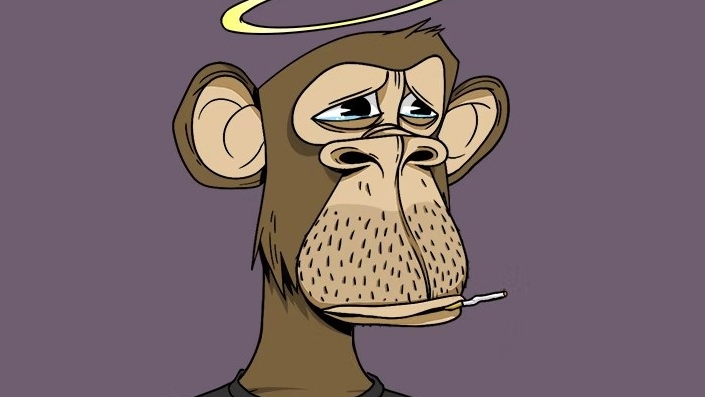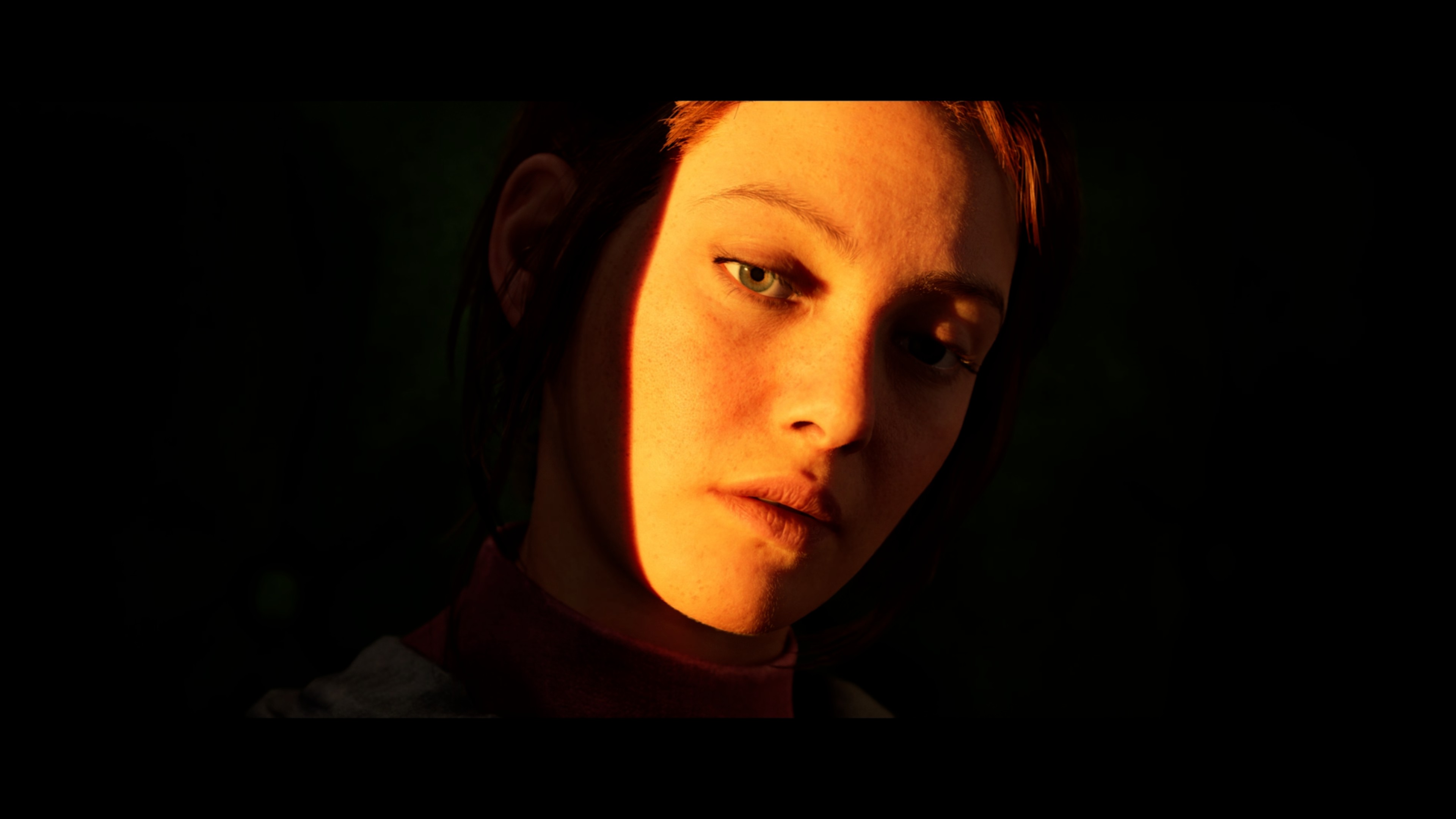Good job, internet: You bullied NFTs out of mainstream games
Or at the very least, made fun of them enough to keep us all from losing our grip on reality.

The internet is a maelstrom of talking—even brief exposure is liable to make you wish everyone would just shut up—but does any of it matter? Does the chorus of social media critics actually do anything? This is the internet's greatest insecurity. Self-conscious social media users diagnose each other with poster's disease and sarcastically cheer "we did it, Reddit" to express that, no, posting on the internet didn't save the day.
Are publishers backing away from NFTs because they don't see value in them, or because they get ruthlessly mocked online every time they talk about them?
Internet mobs have certainly caused some things, though, for better and worse. The anger around loot boxes was at least somewhat responsible for gaining the attention of politicians, leading to the ongoing decline of the practice today. We got them to change ugly movie Sonic into boring movie Sonic. I wonder also where the absence of an internet mob has been felt: Had CS:GO keys and the Steam Community Market been met with the kind of resistance Valve saw when it tried to add paid mods to Steam, how would things be different today?
That brings me to the question I want to pose here: Are game publishers backing away from NFTs because they don't see value in them, or because they get ruthlessly mocked and harangued online every time they talk about them?
As an example, in late 2021, Discord CEO Jason Citron teased NFT integration for the chat app, and thousands of people replied to say "no thanks" in a range of less-polite tones; the most-shared responses suggested canceling Discord Nitro subscriptions. Two days and thousands of comments later, Citron said that the screenshot was just an "internal concept" that the company had no plans to implement, and that he'd share more soon. He has yet to share more, although perhaps he's just biding his time.
Stalker studio GSC Game World, Worms developer Team17, and voice actor Troy Baker also walked back involvement with NFT projects after being yelled at online. After suggesting that NFTs are "the future" of gaming in 2021, EA CEO Andrew Wilson later clarified (after a great deal of internet shit talking) that he was just talking about collectability in general. Back in April, Blizzard president Mike Ybarra said that "no one is doing NFTs" at the studio in response to an Activision Blizzard survey designed to gauge public interest in them—I'm guessing the company got its answer.
Ubisoft is one of the few big companies that actually made it to execution. Undeterred by comments such as "this remains the stupidest and most pointless thing in the god damn world," the publisher gave non-fungible goodies a brief try in Ghost Recon Breakpoint. Today, those NFTs are worthless, Breakpoint isn't being updated anymore, and Ubisoft now says it was all just a research project, not to be taken too seriously.
Every NFT guy looks at video games and thinks “what if you could own Mario’s hat” and everyone else goes “are you fucking stupid and high?”January 2, 2022
Maybe the internet's anti-NFT rhetoric is just shoving mainstream game companies toward the perspective on NFTs they would've taken anyway: Curious but cautious, especially after all the scams and thievery seen over the past couple years, the instability of cryptocurrency markets, and the lack of mainstream interest in actually buying them. Ubisoft may be telling the truth when it says it was just mucking around: If it had really been all-in on profiting from NFTs, would it have started with gun skins for one of its least-popular games?
Keep up to date with the most important stories and the best deals, as picked by the PC Gamer team.
There are lots of pro-NFT commenters online, too, and not every traditional game publisher has been dissuaded. Among the most bullish has been Square Enix, which in November somewhat quietly announced Symbiogenesis, a "digital collectible art project" made not for Square Enix fans, but for "Web3 fans." It smells of Ubisoft's half-heartedness.
SQUARE ENIX IS DOING NFT SHIT FUCK pic.twitter.com/Mmfxes4MNmApril 28, 2021
How come I exclusively hear about their virtues from meme-brained financial gurus and uncool celebs like Tom Brady?
Beneath the common complaints that they're environmentally costly and more or less stupid, I think NFTs inspire so much repulsion on social media because they seem to corrupt something that people actually do want. Sameness is everywhere in this era of mass production, and what started on assembly lines was near-perfected by computers, which can duplicate data near-instantly. From that perspective, the scarcity and uniqueness of NFTs might be seen as subversive: They're pushing against the current of history. It feels like something could be cool about that, somehow. But not thishow. While individual NFTs are unique, the obvious goal of corporations is to do what they always do and mass produce that uniqueness. The majority of NFTs are just another kind of mass-made plastic tchotchke, or commemorative gold coin like the ones sold on TV at 2 am. They contain nothing that's good about handmade, one-of-a-kind items; all they do is irradiate the concept with high-grade art collector snobbery and Beanie Baby-style financial speculation. What is a "Web3 fan" but a fan of buying and owning things? Isn't this about art?
Most of the time I think it's just a fad, but now and then I'll come across the preaching of some passionate Web3 believer and start to wonder if I'm losing it. Do I want to make money by playing videogames? The thought makes me want to turn off my monitor forever, but I guess I did also say that iPads were a stupid idea, and then Apple sold 300,000 of them on the first day. But then, iPads are real things, and none of this seems real. Remember that NFT guy who claimed he burned a Frida Kahlo drawing? Or when Seth Green's ape was stolen, and then he pleaded for its return as if it were a kidnapped child? Why hasn't anyone said "just kidding?" If NFTs are actually a transformative technology, how come I exclusively hear about their virtues from meme-brained financial gurus and uncool celebs like Tom Brady?
I think the internet's NFT bullying has had an effect on mainstream game publishers: If we'd all just shrugged, they'd have tried way more NFT gun skins by now. Even if it hasn't, though, maybe making fun of stuff online is something we do for each other, to remind us all of what's real and validate the overwhelming feeling that it's all very stupid. And I think that's beautiful.
To make this clear: I want nothing to do with any crypto project, even if your blockchain "game" has a pettable dog in it. Peddle your planet-burning scam somewhere else.August 12, 2022

Tyler grew up in Silicon Valley during the '80s and '90s, playing games like Zork and Arkanoid on early PCs. He was later captivated by Myst, SimCity, Civilization, Command & Conquer, all the shooters they call "boomer shooters" now, and PS1 classic Bushido Blade (that's right: he had Bleem!). Tyler joined PC Gamer in 2011, and today he's focused on the site's news coverage. His hobbies include amateur boxing and adding to his 1,200-plus hours in Rocket League.

